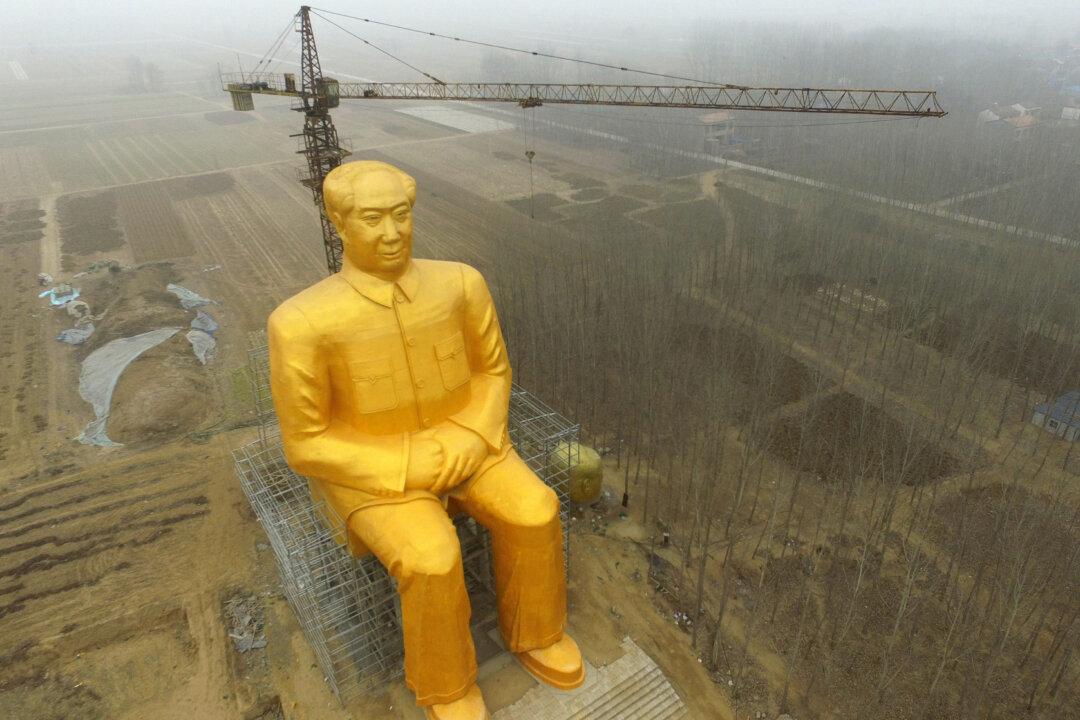An almost finished, 120-foot-tall golden statue of Mao Zedong could once be seen sitting, hands on lap, atop a wire frame in front of a barren field in central China. Giant Mao would only survive two days more after its existence was reported in Western media and widely mocked on the Chinese Internet.
Demolition teams started tearing down the statue in Tongxu County, Henan Province on the morning of Jan. 7, according to The New York Times. By Friday, the 3 million yuan ($465,000) statue of the former Chinese regime leader and dictator, which was financed and constructed under the auspices of a local businessman and prominent county Party cadre, was demolished.
The Chinese Communist Party (CCP) has always struggled to commemorate Mao Zedong, its most prominent but problematic leader. While Mao’s image is kitsch—his face adorns tourist memorabilia in marketplaces—the erecting and swift tearing down of the gold-painted Mao in Henan is loaded with symbolic meaning, according to experts.




